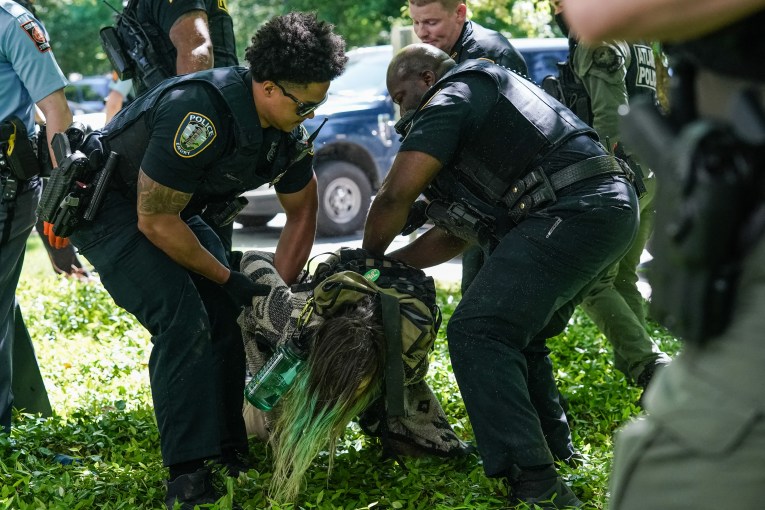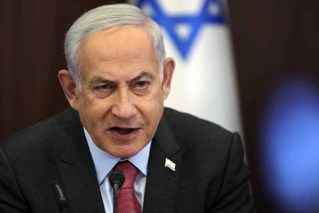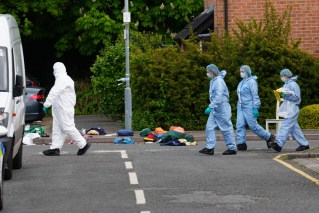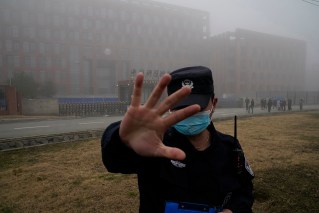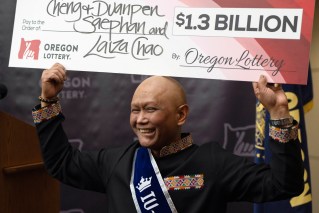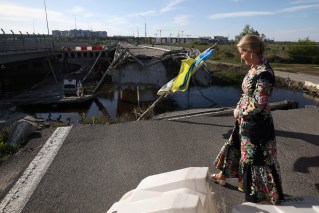Reggae brings healing to war-torn South Sudan
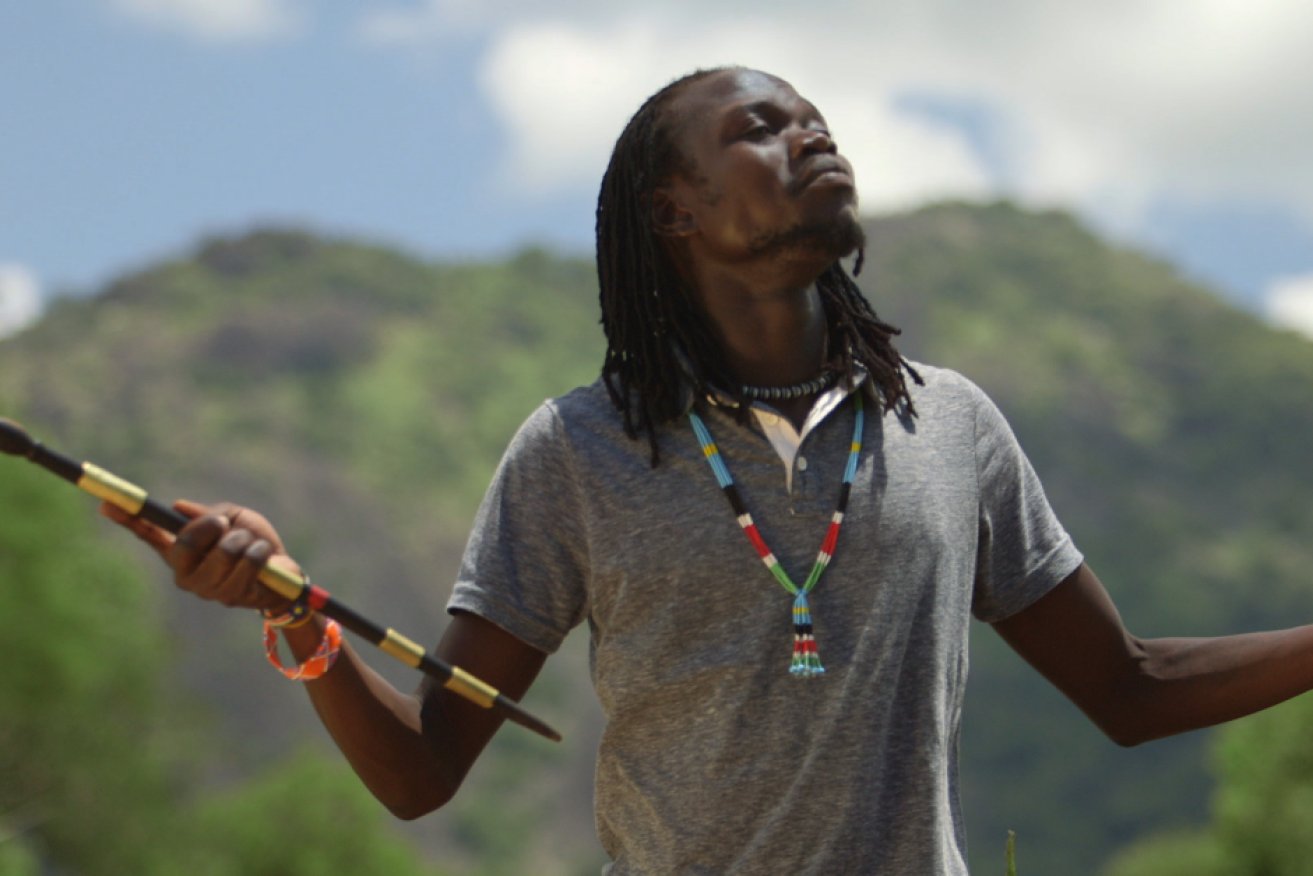
WJ De King dancing. Photo: ABC
WJ De King was only seven years old when the war came to his hometown of Torit in South Sudan. He was separated from his parents in the terror of the gunfire.
“My father run one way, my mother also run.”
Like millions of other people in South Sudan, WJ’s life was turned upside down by the war. He spent seven years in the bush.
“No school, no hospital, no anything. Can you believe that a man like me now, I cannot read, all because I’m in the bush.”
But WJ was determined to make something of his life. He taught himself music during his battle-scarred childhood.

Young South Sudanese men wait for a community celebration in Torit. Photo: Greg Nelson/ABC
He couldn’t write down the lyrics to his own songs, so he remembered them off by heart.
“Music to me is very, very important … Anywhere, even on the frontline, there is music.”
WJ and his father Augustine were apart for 20 years – each unsure if the other was still alive.
One day Augustine went to a concert, not realising that the young man on stage was WJ, his son.
“He liked my songs, but he doesn’t know I’m his son.”

Easy rider at the market in Torit. Photo: Greg Nelson/ABC
South Sudan is the youngest nation on Earth.
Its people fought against the north for more than 20 years in a bitter war for independence – more than two million people died.
Freedom finally came in 2011. But the euphoria was short lived.
Two years later the nation turned on itself as civil war broke out, putting faction against faction, tribe against tribe.
The fighting flared up yet again last month, leaving hundreds dead.
“We are destroying the future, we are destroying the future of our land,” WJ says.
Watch WJ De King rallying young people to Get Up, Stand Up:
WJ is a reggae superstar in South Sudan and one of the young voices for peace.
Young people make up more than 70 per cent of the population, but have little political power.
Instead, leadership is in the hands of former army commanders, who are struggling to make the transition from guns to governance.
Inflation is running at 300 per cent, more than 2.8 million people are suffering from hunger, and billions of dollars have been lost to corruption.
Despite South Sudan’s massive oil reserves, fuel stations are dry and the country is reliant on foreign aid.

Petrol seller on the road to Nimule, South Sudan. Photo: Greg Nelson/ABC
“Let me cry now through music, if my leaders will listen to me … They are not seeing what is happening, people are dying all because of them. People are suffering in the bush, all because of them,” WJ says.
Foreign donors are running out of patience with South Sudan’s leaders who are putting deadly tribal violence, political rivalries and self interest ahead of the future of their country.
James Wani Igga was a military commander in South Sudan’s war with the north. He’s now the Second Vice President.
“I know how destructive the war is. I’ve tasted it for 21 years. So, I know,” James says.

WJ de King meeting former VP James Wani Igga in Lobonok. Photo: Greg Nelson/ABC
James admits corruption is a big problem for the government.
“Greed is high. Greed is high … we must have the will and the determination to do good things to develop the country.”
Millions of people in South Sudan are desperate for a better life.
Almost three quarters of the population can’t read or write.
Many schools are closed because the government hasn’t paid the teachers’ salaries for months.

Children in Mangateen, Juba — the site of some of South Sudan’s worst ethnic-cleansing atrocities. Photo: Greg Nelson/ABC
Basic services such as electricity and running water are still beyond the reach of most people.
WJ’s own family members took years to find each other after the civil war. They are still battling poverty.
His sister Juliana lost her leg when she was shot at the age of seven. His grandmother is blind and frail.
WJ’s messages of peace are resonating across the country.
He sings about the suffering of war, because he’s experienced it.
“One day there will be peace in South Sudan. The world will be happy, because we lost a lot of our people.”
-ABC
